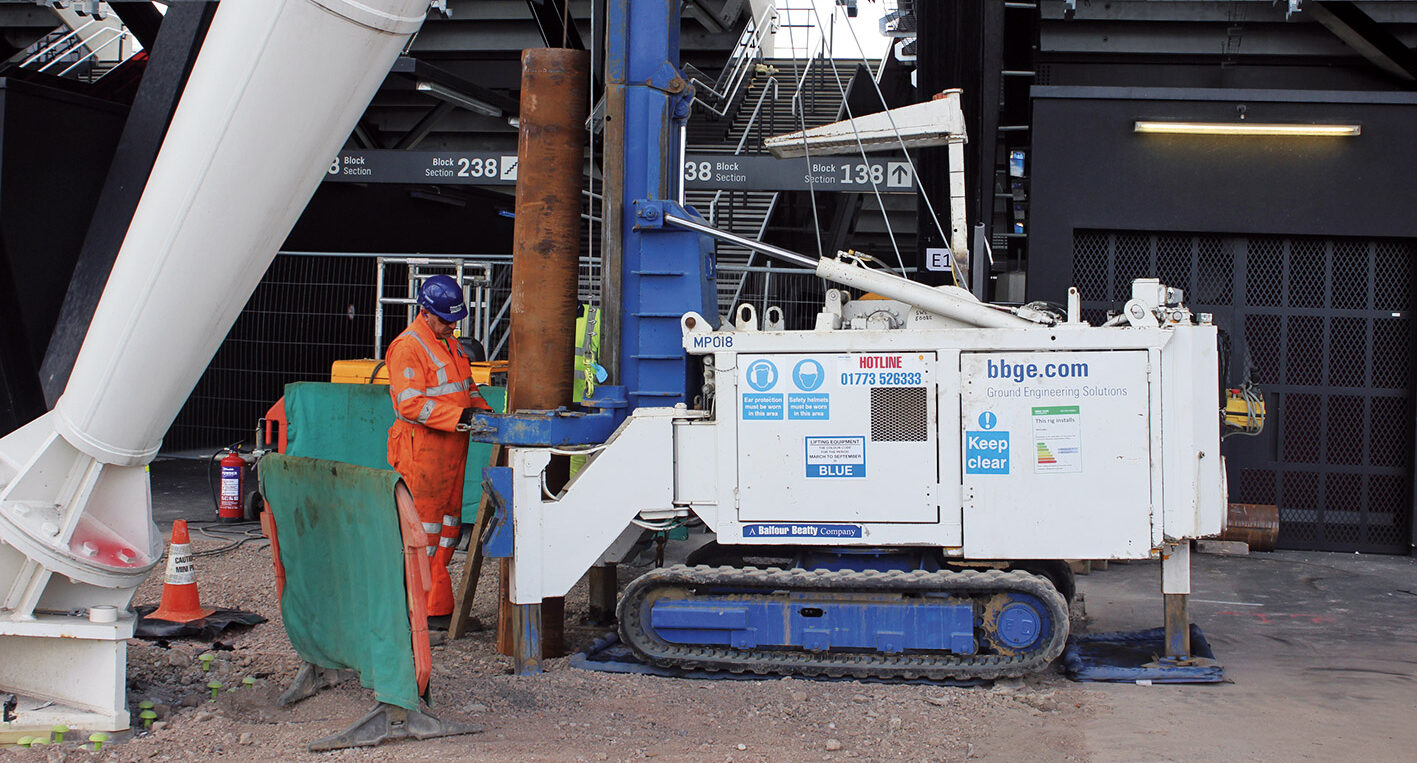We lowered two ‘Klemm 709’ minipiling rigs into the existing basement of the demolished Swiss Centre building to install the piled foundations for the new W Hotel in Leicester Square.
To support the new 12-storey hotel, we installed 278 load-bearing piles with a diameter of 450mm to obtain a safe working load of up to 1,200kN in compression and 500kN in tension.
Due to the site’s congested location, with London Underground tunnels only 7.8 metres away from pile positions, augered minipiles were the best solution for this project, to limit vibration near the sensitive infrastructure. The design incorporated permanent sleeves in the upper sections of the pile to prevent load transfer to the underground tunnel walls.
London clay, while susceptible to volume changes due to changes in water content – particularly near the surface – can be considered as an excellent load-bearing stratum when the correct foundation solution is used. By installing piles to sufficient depth, where any changes in water content will cause little or no appreciable structural movement, the impact of seasonal shrinkage or swelling is mitigated, ensuring long-term structural stability. Therefore, we installed augered minipiles that were designed to depths of between 22 metres and 28 metres and carried out two static load tests on working piles, to prove the suitability of our design.
Alongside the building’s foundations, we installed geothermal technology that was used to heat and cool the new hotel. This included drilling twenty geothermal wells, to depths exceeding 110 metres and inserting two geothermal pipes into each borehole, connected by a U-bend to form a closed loop – forming the basis of an energy efficient heating system for the hotel. We carried out thorough pressure testing on all loops to ensure there were no leaks in the system that could affect its future performance.
Careful sequencing of the piling and geothermal works was imperative to ensure that individual site areas could be completed and handed over to the main contractor for their follow on works as early as possible.
